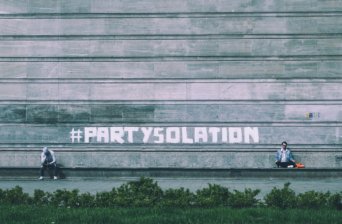- About
- Topics
- Picks
- Audio
- Story
- In-Depth
- Opinion
- News
- Donate
- Signup for our newsletterOur Editors' Best Picks.Send
Read, Debate: Engage.
| topic: | Good Governance |
|---|---|
| located: | Germany, USA, India, Brazil, United Kingdom |
| editor: | Gurmeet Singh |
Crises are shaped by those in power. The material facts of a crisis may be objectively unarguable, but narrative shapes how that crisis is interpreted. That’s why the financial crisis of 2008 was presented as a blip caused by some unruly banks, a ‘credit crunch’ and a time to ‘curb government spending’, and not an integral part of the way capitalism actually works.
Similarly, the current crisis is being shaped by those in power. For many governments and international bodies, the crisis is being treated with the utmost seriousness, and primarily as a public-health issue. In Germany, for example, Angela Merkel’s administration and the Robert Koch Institute have implored people to treat the virus as a social-issue: to understand that one’s actions have a direct impact on others, and to appreciate the strain the virus has caused on public services. By contrast, some governments, such as Brazil’s, have wildly flailed and lashed out at the crisis as a ‘conspiracy’ and ‘fraud’, despite all the evidence.
Britain and the U.S. have both at times handled the crisis effectively, and at other times, treated it as an issue of public safety and policing (trying to solve the crisis through police powers, extending surveillance, and so on). At other times, both countries have muddled through with deeply xenophobic or exceptionalist ideas. These ideas, such as President Trump’s insinuation that the virus was lab-made, have served to justify and explain an incompetent response. They can have devastating consequences, however. Britain’s sense of exceptionalism, the idea that the virus was merely a mild-flu that could be overcome through sheer force of will, has seen the country underprepared, and currently dealing with Western Europe’s highest death toll.
The narrative shapes public understanding of the crisis, and also the response to it. If it is a ‘public health’ crisis, it is ‘solved’ through people washing their hands, social distancing and so on. If it is a ‘public order’ crisis, it is ‘solved’ through people staying indoors and high-levels of policing. In other words, if you arrest enough people, you stop the virus.
But there are also material factors to consider. Countries in the Global South are not equipped to deal with the virus at all. That’s a tragic fact that requires addressing, and countries in the Global North are duty-bound to help. Nevertheless, similar dynamics of power-shaping-narrative are at play. Some have approached the crisis as a public health concern, but due to their lack of capacities, simply cannot manage the virus. India, on the other hand, has tried to shape the crisis as primarily one of public order, leading to chaos.
Each narrative shapes the counter-narrative. In Germany, for example, we’re seeing more and more incendiary protests against government measures. People from all manner of political background and concern have come together to challenge the government. Anti-vaxxers see in the public-health measures clandestine manoeuvres to prepare the public for enforced vaccinations (which is itself an absurd proposition, since no vaccines exist for the virus); the far-right and the far-left have come together to challenge what they see as an overly-powerful government, curbing the freedoms of people. So these disparate groups of extreme political views and conspiracy theorists challenge the government on the basis of their own individual freedom. They are being asked to do something for ‘greater social good’, and their response is, ‘my freedom is being curbed’. As a sign at a similar American protest read, ‘my freedom is more important than your safety’.
This is a kind of negative-liberty, where one is free only from some (limited) external restraint. People are not being forced into slavery or having their basic rights stripped away by being asked to stay at home – yet, they experience it as such, given the various pre-existing ideas about overreaching governments and far-ranging measures.
And yet, within the absurdity of this counter-narrative lays a kernel of truth. The problem with even the German response to the crisis is that it treats everyone as equally impacted. This is simply not true. If your job is in jeopardy or you cannot work from home, the government measures put you at risk economically. The virus response is, therefore, a class concern. It seems to affect people from different socio-economic and ethnic backgrounds differently, meaning it is also a problem of ethnicity. Being forced to stay at home when you cannot, may kill you. So we’re left with a difficult future of discussions ahead. How do we make sure everyone is safe, while also making sure inequalities are recognised?
Image by wal_172619

